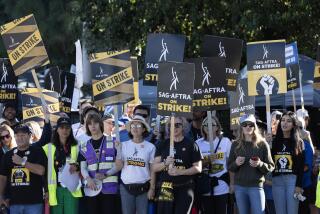British Hopes Fade for Early Coal Mine Pact
- Share via
LONDON — Prospects for an early settlement of the 11-month-old strike by British coal miners appeared to evaporate late Thursday, when both sides in the dispute indicated that their positions remain sharply opposed.
The National Coal Board, supported by the government, declared late in the day that it will continue to insist, as a condition of renewing negotiations, that the miners’ union agree in writing to discuss the closure of money-losing mines. This is the key issue that triggered the strike. Coal board spokesman Michael Eaton said the union “must face the fact that it has to talk about uneconomic pits.”
But miners’ union leader Arthur Scargill said the “way to end this dispute is to agree to resume negotiations without preconditions” and refused the board’s demand.
Hope had been raised during the weekend that the union and the coal board, which runs the nationalized industry, would return to the negotiating table and quickly reach agreement. But observers agreed late Thursday that the intransigence of both sides makes a quick settlement highly unlikely.
The tough stance of the board was reliably said to have been bolstered by Prime Minister Margaret Thatcher, who believes that the miners strike has in effect been broken. The board claims that more than one-third of the 180,000 members of the union have returned to work.
The government’s position is strengthened by the fact that the miners have received little support from other unions. Coal has moved into Britain from abroad by sea and has been carried by non-union trucks to power stations. Also, union workers at the power plants have failed to support the miners’ call for shutting down the plants.
Thus, even during the last three weeks of unusually cold weather in Britain, power stations have functioned as usual. The coal board says power stations in the country have enough coal to last at least through 1985.
More to Read
Sign up for Essential California
The most important California stories and recommendations in your inbox every morning.
You may occasionally receive promotional content from the Los Angeles Times.













